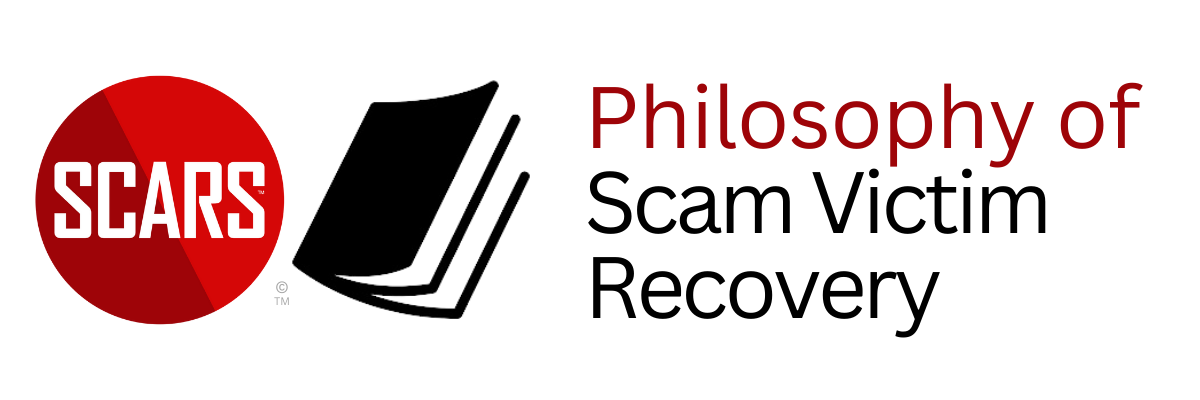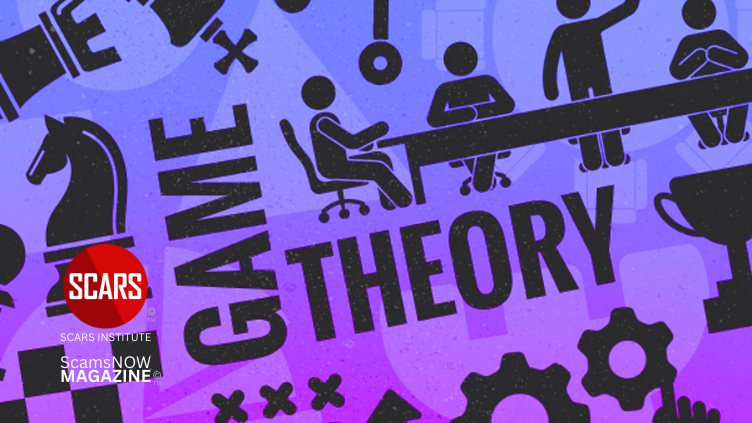Dostoevsky’s Views on Pain and Suffering and Their Impact on Scam Victims
From Suffering to Strength: Dostoevsky’s Insights on Healing and Growth for Scam Victims
Primary Category: Philosophy of Scam Victim Recovery
Author:
• Tim McGuinness, Ph.D., DFin, MCPO, MAnth – Anthropologist, Scientist, Polymath, Director of the Society of Citizens Against Relationship Scams Inc.
About This Article
Fyodor Dostoevsky’s philosophy of suffering, morality, and faith offers a powerful framework for scam victims seeking recovery and personal growth. He viewed suffering as an essential part of the human condition, one that can lead to self-discovery, redemption, and transformation.
For victims of scams, this perspective provides a way to reframe their trauma as an opportunity for emotional and moral growth. By embracing the pain of loss and betrayal, and focusing on inner resilience rather than external material attachments, scam victims can embark on a journey toward healing and greater self-awareness, ultimately achieving post-traumatic growth.

From Suffering to Strength: Dostoevsky’s Insights on Healing and Growth for Scam Victims
Fyodor Dostoevsky, one of Russia’s most celebrated writers, had profound and often complex views on life and happiness. His philosophical and spiritual reflections were deeply influenced by his personal experiences, including imprisonment, illness, and a near-execution. These themes are intricately woven into his novels and short stories, particularly in his exploration of human suffering, morality, faith, and the human condition.
Suffering as an Integral Part of Life
Dostoevsky believed that suffering is an inevitable and essential part of human existence. His view was that suffering not only reveals the deepest aspects of the human soul but also has the potential to lead to personal growth and spiritual awakening. In his major works like Crime and Punishment, The Brothers Karamazov, and Notes from Underground, suffering often serves as a pathway for self-discovery or redemption.
For Dostoevsky, happiness could not be achieved through avoiding pain or hardship. Instead, he argued that true happiness and fulfillment often come through confronting and enduring life’s difficulties. Characters in his novels frequently struggle with internal conflicts, moral dilemmas, and existential questions, all of which stem from the universal experience of suffering.
The Role of Faith and Morality
Another essential component of Dostoevsky’s views on life and happiness is the role of faith, particularly Christian faith. He was a devout Christian, and much of his philosophy is rooted in the belief that the search for meaning and happiness must involve a connection to God and moral responsibility. Without faith, Dostoevsky believed that individuals are left in a state of despair, moral confusion, and nihilism.
In The Brothers Karamazov, the character of Alyosha Karamazov represents Dostoevsky’s ideal of faith and love. Alyosha’s belief in God and his commitment to living a life of moral integrity provide a pathway to true happiness, despite the pain and suffering he witnesses around him. Dostoevsky’s work suggests that a life without faith leads to alienation and moral decay, while a life grounded in faith offers the possibility of redemption and inner peace.
The Paradox of Happiness
Dostoevsky also recognized the paradoxical nature of human happiness. In Notes from Underground, the Underground Man represents the conflict between rationality and emotion, and how the pursuit of pure, rational self-interest can lead to unhappiness. Dostoevsky believed that the pursuit of material happiness or pleasure, devoid of deeper meaning, could lead to a hollow and unfulfilled existence. This idea is reflected in his disdain for the utopian vision of human progress based on material prosperity, which he saw as ignoring the complexity of human desires and moral struggles.
For Dostoevsky, happiness is not a static state of pleasure or satisfaction but rather a dynamic process of wrestling with life’s greatest questions—love, guilt, forgiveness, and redemption. True happiness, in his view, comes from living authentically, embracing suffering, seeking moral truth, and finding faith in something greater than oneself.
What This Means for Scam Victims
Dostoevsky’s views on life, suffering, and happiness can offer significant insights into the recovery process for deeply traumatized scam victims and the development of what is known as “traumatic growth”—the positive psychological change experienced as a result of struggling with highly challenging life circumstances.
Embracing Suffering as Part of Recovery
One of the key elements in Dostoevsky’s philosophy is the belief that suffering is an inevitable part of life, but that it also holds the potential for personal growth and transformation. For scam victims, the emotional and psychological damage caused by betrayal, financial loss, and shattered trust can feel overwhelming. Dostoevsky’s belief in the importance of suffering could provide a way for victims to understand that while their pain is deep, it is also part of the human condition, and that growth is possible through the experience of trauma.
Victims of scams often experience feelings of shame, guilt, and confusion over how they were deceived. Dostoevsky’s view that suffering is a necessary part of the human journey could help them reframe their experience—not as a source of personal failure, but as a stepping stone toward greater understanding and resilience. The notion that suffering can lead to enlightenment or personal insight could empower scam victims to face their trauma rather than feel defeated by it.
Finding Meaning Through Faith or Moral Reflection
Dostoevsky’s emphasis on faith and moral responsibility offers another path toward recovery. While not all scam victims may be religious, the broader idea of finding meaning through inner reflection, moral clarity, or spiritual belief can aid in the healing process. Scam victims often struggle with questions of trust—both in others and in themselves. By focusing on rebuilding their sense of moral integrity and reconnecting with their values, victims can begin to heal the moral and emotional wounds inflicted by their trauma.
For those who have a spiritual belief system, Dostoevsky’s focus on Christian faith and the idea of redemption through suffering may provide comfort. Victims could find solace in the notion that their pain is part of a larger spiritual journey, and that redemption, healing, and happiness are possible, even after profound betrayal.
The Paradox of Happiness and Letting Go of Material Attachments
Dostoevsky’s exploration of happiness as something deeper than material success or comfort is especially relevant for victims of financial scams. The immediate loss—whether it be money, reputation, or relationships—often leaves victims feeling devastated. However, Dostoevsky’s philosophy suggests that true happiness doesn’t come from external possessions but from a deeper sense of self and purpose. For scam victims, this perspective can help them detach from the material loss and refocus on their internal strength and personal growth.
By shifting their focus from external outcomes (like the recovery of lost money) to internal resilience and healing, scam victims can foster personal growth. This realignment can reduce feelings of bitterness or fixation on what was lost, and instead, encourage them to focus on what can be gained from their experience—whether it’s wisdom, emotional strength, or a renewed sense of purpose.
Developing Traumatic Growth Through Moral and Spiritual Inquiry
Dostoevsky’s work often features characters who undergo profound spiritual and moral crises, only to emerge with a deeper understanding of themselves and the world around them. This mirrors the concept of post-traumatic growth—the positive transformation that can occur as a result of trauma. Scam victims, through the painful process of recovery, may come to better understand themselves, their vulnerabilities, and their strengths.
By embracing the idea that suffering can lead to personal growth, scam victims might be encouraged to use their trauma as a catalyst for positive change. For example, they may become more aware of their emotional needs, more cautious in their decision-making, or more empathetic toward others in similar situations. Dostoevsky’s emphasis on the struggle between good and evil, right and wrong, and the human capacity for redemption can inspire victims to see their recovery as not just an emotional process, but also a moral and psychological journey toward a stronger self.
From Trauma to Strength
Dostoevsky’s views on suffering, faith, and the search for meaning align closely with the process of recovering from traumatic events like scams. His belief that suffering is both inevitable and transformative can help scam victims reframe their experience as an opportunity for growth. By focusing on internal healing, moral reflection, and the search for deeper happiness beyond material loss, victims can move toward personal growth and resilience. Dostoevsky’s philosophy offers a pathway to traumatic growth—helping individuals not just to survive their trauma, but to become stronger and more self-aware through it.
Conclusion
Dostoevsky’s views on life and happiness are deeply intertwined with his religious faith, his belief in the transformative power of suffering, and his exploration of the complexities of human nature. He saw happiness not as a fleeting emotional state but as a deeper, more spiritual fulfillment that could only be achieved through personal struggle, moral reflection, and faith. In his view, life’s purpose is found in the search for meaning beyond material wealth or comfort, with true happiness emerging from a life lived in accordance with moral and spiritual values.
-/ 30 /-
What do you think about this?
Please share your thoughts in a comment below!
A Note About Labeling!
We often use the term ‘scam victim’ in our articles, but this is a convenience to help those searching for information in search engines like Google. It is just a convenience and has no deeper meaning. If you have come through such an experience, YOU are a Survivor! It was not your fault. You are not alone! Axios!
Statement About Victim Blaming
SCARS Institute articles examine different aspects of the scam victim experience, as well as those who may have been secondary victims. This work focuses on understanding victimization through the science of victimology, including common psychological and behavioral responses. The purpose is to help victims and survivors understand why these crimes occurred, reduce shame and self-blame, strengthen recovery programs and victim opportunities, and lower the risk of future victimization.
At times, these discussions may sound uncomfortable, overwhelming, or may be mistaken for blame. They are not. Scam victims are never blamed. Our goal is to explain the mechanisms of deception and the human responses that scammers exploit, and the processes that occur after the scam ends, so victims can better understand what happened to them and why it felt convincing at the time, and what the path looks like going forward.
Articles that address the psychology, neurology, physiology, and other characteristics of scams and the victim experience recognize that all people share cognitive and emotional traits that can be manipulated under the right conditions. These characteristics are not flaws. They are normal human functions that criminals deliberately exploit. Victims typically have little awareness of these mechanisms while a scam is unfolding and a very limited ability to control them. Awareness often comes only after the harm has occurred.
By explaining these processes, these articles help victims make sense of their experiences, understand common post-scam reactions, and identify ways to protect themselves moving forward. This knowledge supports recovery by replacing confusion and self-blame with clarity, context, and self-compassion.
Additional educational material on these topics is available at ScamPsychology.org – ScamsNOW.com and other SCARS Institute websites.
-/ 30 /-
What do you think about this?
Please share your thoughts in a comment below!
TABLE OF CONTENTS
- From Suffering to Strength: Dostoevsky’s Insights on Healing and Growth for Scam Victims
- About This Article
- From Suffering to Strength: Dostoevsky’s Insights on Healing and Growth for Scam Victims
- Suffering as an Integral Part of Life
- The Role of Faith and Morality
- The Paradox of Happiness
- What This Means for Scam Victims
- Conclusion
- A Note About Labeling!
CATEGORIES
![NavyLogo@4x-81[1] Dostoevsky’s Views on Pain and Suffering and Their Impact on Scam Victims - 2024](https://scamsnow.com/wp-content/uploads/2025/04/NavyLogo@4x-811.png)
ARTICLE META
Important Information for New Scam Victims
- Please visit www.ScamVictimsSupport.org – a SCARS Website for New Scam Victims & Sextortion Victims.
- SCARS Institute now offers its free, safe, and private Scam Survivor’s Support Community at www.SCARScommunity.org – this is not on a social media platform, it is our own safe & secure platform created by the SCARS Institute especially for scam victims & survivors.
- SCARS Institute now offers a free recovery learning program at www.SCARSeducation.org.
- Please visit www.ScamPsychology.org – to more fully understand the psychological concepts involved in scams and scam victim recovery.
If you are looking for local trauma counselors, please visit counseling.AgainstScams.org
If you need to speak with someone now, you can dial 988 or find phone numbers for crisis hotlines all around the world here: www.opencounseling.com/suicide-hotlines
Statement About Victim Blaming
Some of our articles discuss various aspects of victims. This is both about better understanding victims (the science of victimology) and their behaviors and psychology. This helps us to educate victims/survivors about why these crimes happened and not to blame themselves, better develop recovery programs, and help victims avoid scams in the future. At times, this may sound like blaming the victim, but it does not blame scam victims; we are simply explaining the hows and whys of the experience victims have.
These articles, about the Psychology of Scams or Victim Psychology – meaning that all humans have psychological or cognitive characteristics in common that can either be exploited or work against us – help us all to understand the unique challenges victims face before, during, and after scams, fraud, or cybercrimes. These sometimes talk about some of the vulnerabilities the scammers exploit. Victims rarely have control of them or are even aware of them, until something like a scam happens, and then they can learn how their mind works and how to overcome these mechanisms.
Articles like these help victims and others understand these processes and how to help prevent them from being exploited again or to help them recover more easily by understanding their post-scam behaviors. Learn more about the Psychology of Scams at www.ScamPsychology.org
SCARS INSTITUTE RESOURCES:
If You Have Been Victimized By A Scam Or Cybercrime
♦ If you are a victim of scams, go to www.ScamVictimsSupport.org for real knowledge and help
♦ SCARS Institute now offers its free, safe, and private Scam Survivor’s Support Community at www.SCARScommunity.org/register – this is not on a social media platform, it is our own safe & secure platform created by the SCARS Institute especially for scam victims & survivors.
♦ Enroll in SCARS Scam Survivor’s School now at www.SCARSeducation.org
♦ To report criminals, visit https://reporting.AgainstScams.org – we will NEVER give your data to money recovery companies like some do!
♦ Follow us and find our podcasts, webinars, and helpful videos on YouTube: https://www.youtube.com/@RomancescamsNowcom
♦ Learn about the Psychology of Scams at www.ScamPsychology.org
♦ Dig deeper into the reality of scams, fraud, and cybercrime at www.ScamsNOW.com and www.RomanceScamsNOW.com
♦ Scam Survivor’s Stories: www.ScamSurvivorStories.org
♦ For Scam Victim Advocates visit www.ScamVictimsAdvocates.org
♦ See more scammer photos on www.ScammerPhotos.com
You can also find the SCARS Institute’s knowledge and information on Facebook, Instagram, X, LinkedIn, and TruthSocial
Psychology Disclaimer:
All articles about psychology and the human brain on this website are for information & education only
The information provided in this and other SCARS articles are intended for educational and self-help purposes only and should not be construed as a substitute for professional therapy or counseling.
Note about Mindfulness: Mindfulness practices have the potential to create psychological distress for some individuals. Please consult a mental health professional or experienced meditation instructor for guidance should you encounter difficulties.
While any self-help techniques outlined herein may be beneficial for scam victims seeking to recover from their experience and move towards recovery, it is important to consult with a qualified mental health professional before initiating any course of action. Each individual’s experience and needs are unique, and what works for one person may not be suitable for another.
Additionally, any approach may not be appropriate for individuals with certain pre-existing mental health conditions or trauma histories. It is advisable to seek guidance from a licensed therapist or counselor who can provide personalized support, guidance, and treatment tailored to your specific needs.
If you are experiencing significant distress or emotional difficulties related to a scam or other traumatic event, please consult your doctor or mental health provider for appropriate care and support.
Also read our SCARS Institute Statement about Professional Care for Scam Victims – click here
If you are in crisis, feeling desperate, or in despair, please call 988 or your local crisis hotline – international numbers here.
More ScamsNOW.com Articles
A Question of Trust
At the SCARS Institute, we invite you to do your own research on the topics we speak about and publish. Our team investigates the subject being discussed, especially when it comes to understanding the scam victims-survivors’ experience. You can do Google searches, but in many cases, you will have to wade through scientific papers and studies. However, remember that biases and perspectives matter and influence the outcome. Regardless, we encourage you to explore these topics as thoroughly as you can for your own awareness.

























![scars-institute[1] Dostoevsky’s Views on Pain and Suffering and Their Impact on Scam Victims - 2024](https://scamsnow.com/wp-content/uploads/2025/04/scars-institute1.png)

![niprc1.png1_-150×1501-1[1] Dostoevsky’s Views on Pain and Suffering and Their Impact on Scam Victims - 2024](https://scamsnow.com/wp-content/uploads/2025/04/niprc1.png1_-150x1501-11.webp)